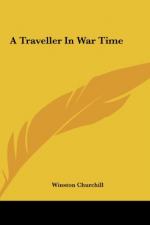“But what are they shooting at?” I asked.
“Listen,” said one of the officers. There came a lull in the firing and then a faint, droning noise like the humming of insects on a still summer day. “It’s all they have to shoot at, that noise.”
“But their own planes?” I objected.
“The Gotha has two engines, it has a slightly different noise, when you get used to it. You’d better step out of that window. It’s against the law to show light, and if a bomb falls in the street you’d be filled with glass.” I overcame my fascination and obeyed. “It isn’t only the bombs,” my friend went on, “it’s the falling shrapnel, too.”
The noise made by those bombs is unmistakable, unforgetable, and quite distinct from the chorus of the guns and shrapnel—a crashing note, reverberating, sustained, like the E minor of some giant calliope.
In face of the raids, which coincide with the coming of the moon, London is calm, but naturally indignant over such methods of warfare. The damage done is ridiculously small; the percentage of deaths and injuries insignificant. There exists, in every large city, a riffraff to get panicky: these are mostly foreigners; they seek the Tubes, and some the crypt of St. Paul’s, for it is wise to get under shelter during the brief period of the raids, and most citizens obey the warnings of the police. It is odd, indeed, that more people are not hurt by shrapnel. The Friday following the raid I have described I went out of town for a week-end, and returned on Tuesday to be informed that a shell had gone through the roof outside of the room I had vacated, and the ceiling and floor of the bedroom of one of the officers who lived below. He was covered with dust and debris, his lights went out, but he calmly stepped through the window. “You’d best have your dinner early, sir,” I was told by the waiter on my return. “Last night a lady




